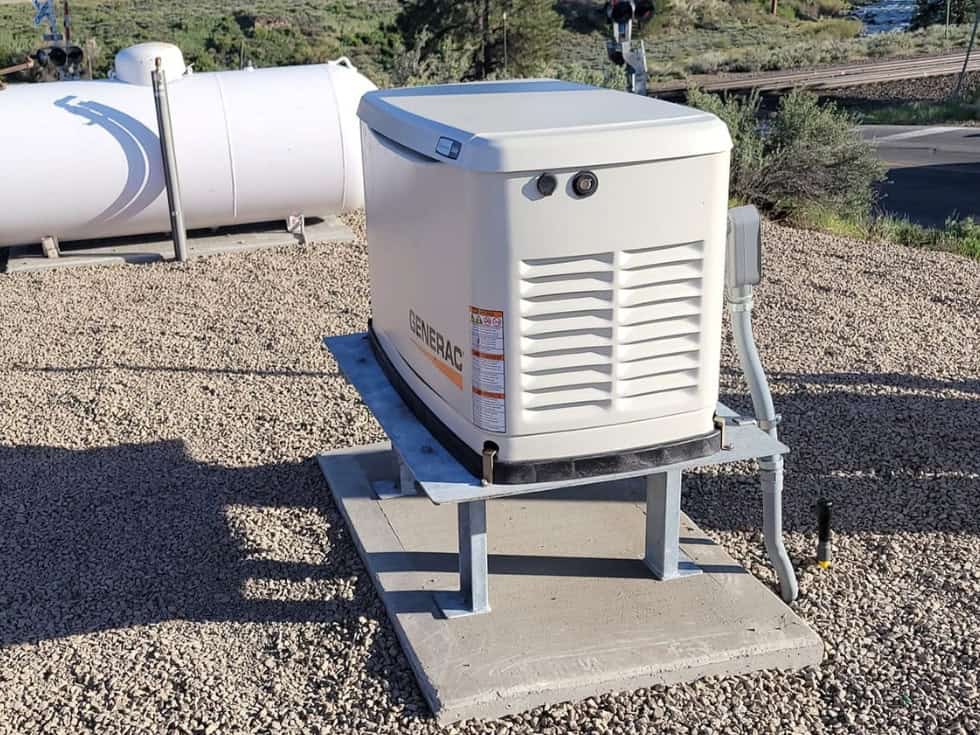Standby or backup generators usually need to provide emergency power for your home or business for just a few hours until power is restored. But sometimes, prolonged power outages occur. Before that happens, it’s good to know what runtime you can expect from your generator, including whether you can count on your backup generator to provide continuous power until your utility company has time to respond and make the repairs needed for power restoration.
Luckily, GenerX Generators offers backup generators from Generac that are designed to provide ongoing power during lengthy electrical outages, with most designed to come on automatically when your home or business loses power. Still, the amount of time you can continuously run a backup generator largely depends on the fuel that powers your unit. A look at the limits of backup generators based on fuel type can help you gauge your expectations when preparing for the inevitable loss of power during and after storms and other weather events.
Runtime for Diesel and Liquid Propane Generators
Diesel or liquid propane generators offer continuous operation when the occasion calls for it, provided you have an ample supply of fuel for the generator. For example, a Generac diesel generator is attached to a fuel tank that feeds the generator’s engine and provides the combustion needed to generate electrical power for your needs. Fuel tank capacity is limited, however, so diesel generators can only run for as long as the fuel holds out.
When operating a diesel generator for an extended period of time, you may need to refuel. Similarly, liquid propane or LP generators are also limited by the amount of fuel available for them to operate. Most diesel and LP generators can store enough fuel to last for one to three days. Storage tanks are available in a range of sizes.
Runtime for Natural Gas Generators
Backup generators powered by natural gas are connected to a public gas supply, so refueling is never an issue for generators of this type. Provided the main gas line connecting the generator to the local supply is working, your standby generator should operate as long as you need it to.
Runtime for a natural gas backup generator, while unaffected by the need to refuel, can be limited somewhat by oil usage and engine temperature. Generac generators with 1800 rpm engines tend to be the most efficient, able to run constantly for as long as eight days.
TLC for Your Standby Generator
Continuously running your generator can be detrimental to its life span, placing an immense amount of strain on the unit. During a prolonged power outage, the smartest thing to do may be to limit the generator’s use as much as possible by allowing it to run only during waking hours, if possible, for residences.
For business use, if feasible, run your backup generator during working hours only. The less you run your generator, the less wear and tear it sustains and the more time it has to cool.
Backup Generators vs. Portable Generators
A backup generator is not the same as a portable generator. A standby or backup generator features a hard-wired connection to your home and turns on by itself when the power goes out.
By contrast, portable gas-powered generators provide power to your home via power cords and are limited in the amount of power they can provide. These generators are intended for short-term outage needs, whereas standby generators are engineered for more extensive power outages.
Backup generators are safer than portable models since there’s no gas to contend with and no power cords to run. The risks that plague the use of portable units — electrical shock, carbon monoxide poisoning and fire — are reduced or eliminated altogether with the installation of a standby model.
A backup generator by Generac also gives you the confidence that even if your power goes out while you’re away, crucial home systems such as your heating and cooling system or appliances such as your refrigerator continue to get the power they need. Backup generators, especially those with higher wattage output, power homes longer than portable generators and can handle greater electrical output needs.
Which Generac Standby Generator Is Best for Your Needs?
When selecting a standby generator for your home, deciding between diesel or LP generators and natural gas standby generators is a big consideration. Your GenerX standby generator installer can help you determine which makes the most sense for your needs, including units that meet your requirements based on power ratings, transfer switch options, gas line needs and other factors.
Standby Generators: The Bottom Line
A standby or backup generator is a godsend for homes and businesses experiencing a power outage, and most can be operated for several days if necessary. However, just because you can run most standby generators continuously during extended power outages doesn’t mean you should. Limiting continual use of your standby generator by allowing intervals for it to rest and cool down is a smart move that may increase your generator’s life span and help it operate more efficiently.
Learn more about Generac backup or standby generators for your home or business from GenerX Generators before the storm season hits. Our team can show you how backup generator installation adds to the overall value of your home while giving you peace of mind that your backup power needs are taken care of, no matter what Mother Nature throws your way.

